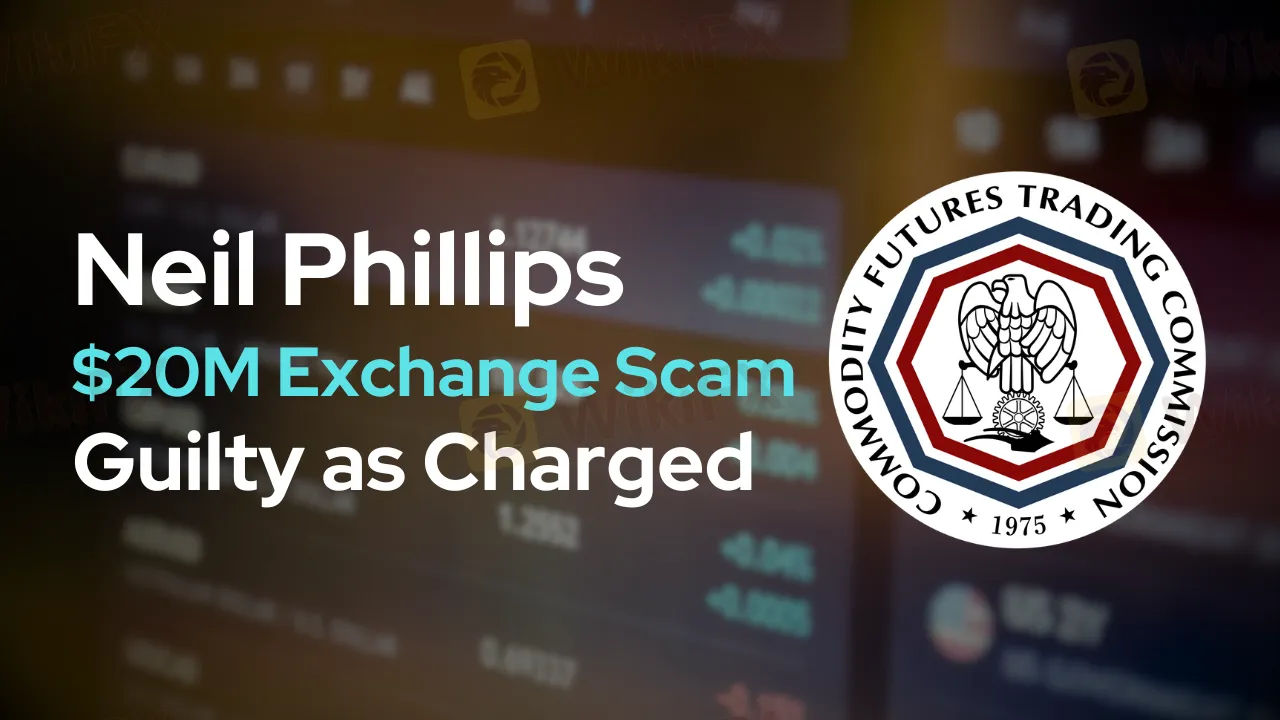Abstract:London hedge-fund manager, Neil Phillips, was convicted of commodities fraud in New York for manipulating the USD/ZAR exchange rate, leading to a $30 million payout. The case highlights the importance of ethical financial practices and the potential consequences of misconduct.

In a significant ruling that underscores the importance of fair market activity, London-based hedge-fund manager Neil Phillips has been found guilty of commodities fraud by a New York federal jury. The charges revolve around the manipulation of the USD/ZAR (US dollar/South African rand) exchange rate that allegedly resulted in a payout of $30 million.
Background of the Case
Phillips, the chief investment officer at Glen Point, was charged with skewing the USD/ZAR exchange rate to reap benefits under two large binary option contracts that his fund had procured. Such manipulation of the exchange rate, especially around the pivotal barrier rate of 12.5, triggered the payouts on these option contracts. The complaint further highlights the involvement of at least two other individuals, hinting at potential charges against additional people.
Interestingly, the indictment surfaced in the final days of December 2017. With only a few days remaining for the “one touch” digital option for USD/ZAR to expire, Phillips and his team reportedly engaged in a maneuver to artificially depress the exchange rate. The Commodity Futures Trading Commission (CFTC) revealed that Phillips had sold approximately $725 million USD/ZAR within a brief span of just over an hour.
Defense Stance

In response to these serious allegations, Phillips' defense firmly contested the charges. They stated that all transactions were legitimately executed in the open market, emphasizing the transparency of their actions. The defense further highlighted that their so-called victims were in fact seasoned financial institutions, familiar with trading complexities.
Supporting Phillips' position, defense lawyer Jenna Dabbs argued that his actions were in line with what any investor would do under similar circumstances. Moreover, Phillips emphasized that his strategies were part of a broader, industry-accepted practice concerning barrier trading. As evidence, he noted that Morgan Stanley, the entity that sold the option to Glen Point for around $2 million, had also carried out comparable trades to balance its own associated risks.
Repercussions and Comments
Damian Williams, the United States Attorney for the Southern District of New York, praised the ruling, highlighting its importance in protecting financial markets. “The policing of financial markets is critical for the well-being of our economy,” he said. Our office is dedicated to eradicating such fraudulent acts and maintaining fair market operations for all investors.
Neil Phillips, with notable experience managing a $1.4 billion global macro fund at BlueBay Asset Management and being a co-founder of Glen Point Capital, now potentially faces a maximum sentence of 10 years behind bars. In a related note, Glen Point Capital reportedly ceased its trading activities last February.
In the wake of this case, the financial community is reminded of the importance of ethical practices, as institutions and individuals alike face heightened scrutiny and potential repercussions for any misdeeds.
Who is Neil Phillips?
Neil Phillips is a London-based hedge fund manager known primarily for his role as the chief investment officer at Glen Point. Before his association with Glen Point, Phillips managed a $1.4 billion global macro fund at BlueBay Asset Management, showcasing his prowess in the world of finance and investments. His career has not been without controversy.

He was embroiled in a significant legal case, wherein he was convicted of commodities fraud by a New York federal jury for manipulating the USD/ZAR (US dollar/South African rand) exchange rate. This manipulation allegedly facilitated a $30 million payout under two binary option contracts that his fund had purchased.
Apart from his professional endeavors, Phillips co-founded Glen Point Capital, further solidifying his position in the hedge fund industry. Glen Point even received backing from notable financial figures, including George Soros, a testament to its perceived potential in its heyday.
However, following the legal complications, Glen Point Capital terminated its trading operations. Phillips once celebrated for his financial acumen, now remains a cautionary figure in the finance world, illustrating the delicate balance between ambition and the rule of law.












